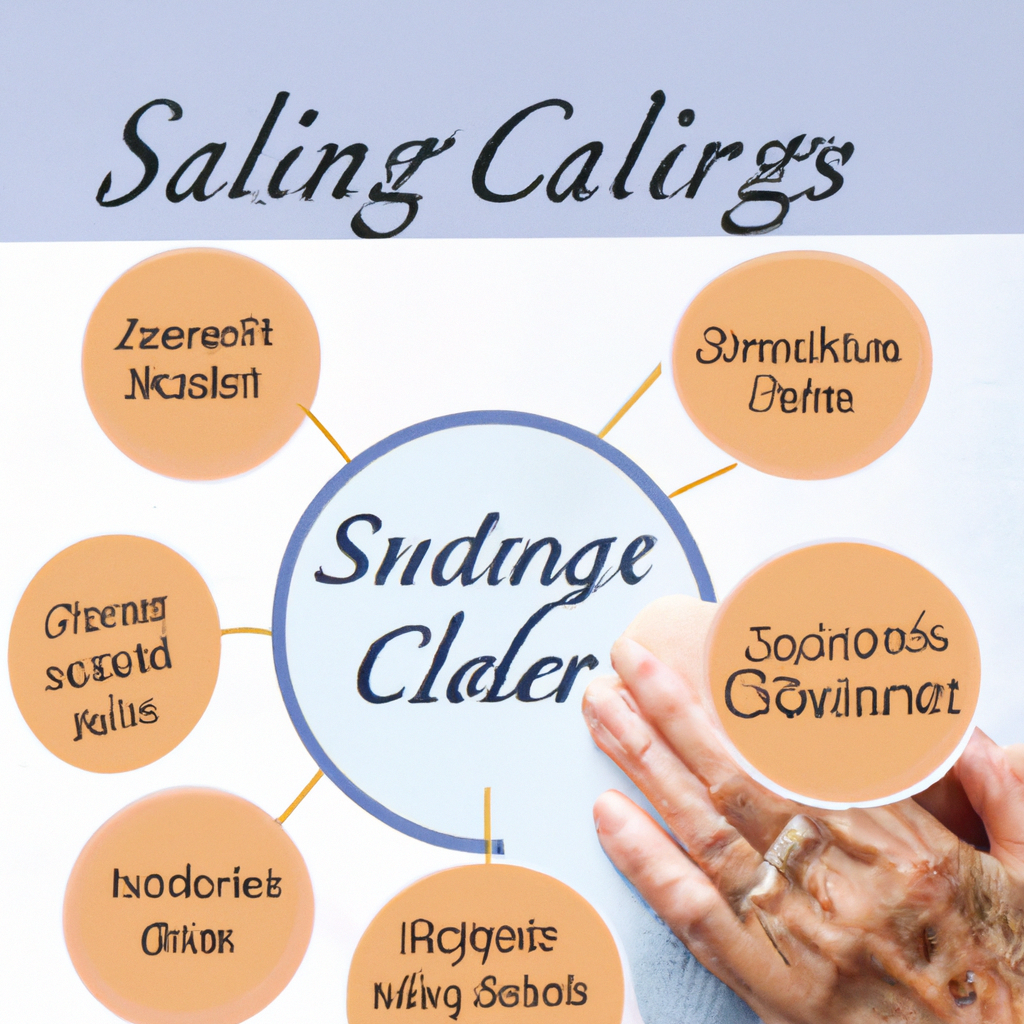As we get older, our skin changes. These changes can be more noticeable for those over sixty and require us to take special care when looking after our skin. In this article, we’ll look at how to care for aging skin, common conditions to be aware of, and treatments to help keep skin healthy and looking its best.
1. Unraveling the Mystery of Aging Skin
As we age, our skin inevitably changes – wrinkles, discoloration, looseness, and sagging are all telltale signs. Aging skin can be a source of frustration and self-consciousness. But the truth is, it’s a perfectly natural part of life. So how can we accept and care for our skin as it ages? Here are a few tips to make the most of it.
Skin care routine: formulate a gentle cleansing routine that works with your changing skin. Use light products – such as oil-based cleansers or gentle exfoliators – to keep skin soft without stripping away its natural oils. Locking in moisture using a moisturizer with natural ingredients is also crucial.
Protect, protect, protect: free radicals and UV rays are a big factor in premature aging. Applying (and re-applying!) sunscreen is essential for keeping skin healthy and smooth. And wearing a hat or scarf, and avoiding too much sun exposure, are easy ways to stay on top of sun protection.
Healthy habits: taking strides to be healthy is one of the best ways to maintain a youthful complexion. Eating a balanced and nutrient-rich diet, as well as exercising regularly, will come a long way in preserving your skin’s vitality. Getting plenty of rest and drinking plenty of water are other essential components.
- Try different treatments
- Consider serums and skin boosters
- Know when to seek professional care
Welcoming our skin’s natural progression into maturity can be intimidating, but by taking the right steps, we can set ourselves up for brighter, healthier skin. As with most things, practice makes perfect – so start your journey today.
2. Discovering the Secrets to Elderly Skin Care
Caring for elderly skin can be tricky. Not only do the changes that come with aging make skin care more complex, but aging skin is more fragile and more prone to irritation. But there are some secrets to unlocking the potential of healthy skin in the elderly. Here are a few tips to help get your skincare regimen on track:
- Cleanse Gently: Use gentle cleansers that are free of harsh ingredients such as alcohol and fragrances. Avoid cleansers that strip away the skin’s natural oils, as this can lead to dryness and irritation.
- Hydrate Deeply: As we age, our skin’s natural moisture can decline significantly, so hydration is key. Consider using moisturizers specifically formulated for aging skin with ingredients such as hyaluronic acid and peptides that are designed to replenish the skin’s natural lipids and help seal hydration into the skin.
- Protect: Elderly skin is more susceptible to the effects of the sun, so a good sunscreen should be a part of your daily routine. Choose a sunscreen with an SPF of at least 30 and apply it every day, year-round.
In addition, it’s important to make lifestyle changes to keep skin healthy and give it the extra protection it needs in old age. Limit your sun exposure as much as possible, reduce your alcohol intake, quit smoking and eat a balanced, nutrient-rich diet. Additionally, it’s important to get plenty of sleep to ensure that skin gets the regeneration it needs to heal and rejuvenate.
Finally, consider incorporating facial skin care treatments such as microdermabrasion, chemical peels and dermal fillers into your routine. These treatments can help to plump the skin and encourage collagen production, reducing the appearance of wrinkles and giving skin a more youthful look. By following these steps, you can give your elderly skin the extra care and attention it needs to look and feel its best.
3. Exploring Common Aging Skin Issues
When it comes to aging, while wrinkles may be the first noticeable signs of decline, there are a whole host of common aging skin issues that may rear their heads to affect the health and look of our aging skin.
Let’s explore these further:
- The most common issue caused by aging skin is a decrease in collagen. When we’re young our skin cycles through collagen replacements quickly, however as time passes this speed slows, which can affect the strength, thickness, elasticity and even colouring of our skin.
- Age spots, or hyper pigmentation, is another age related issue- these spots appear as patches of discolouration on the skin surface.
- aged skin may also become prone to dehydration and dryness, as the natural lipids in aged skin typically attract less water.
- Lastly, wrinkles and fine lines increase in number as our skin retain less moisture, and the connective tendons and tissue weaken with time.
The good news is that there are ways to battle the appearance of these skin changes- from proper skin care routines, such as avoiding direct sunlight, cleansing every evening and SPF protection, to laser resurfacing treatments to target spots and wrinkles.
Finding the right combination for you depends on the type of skin you have and the issues you’re looking to address. Talking to a skincare or medical professional can help get you on the path to more youthful, brighter looking skin.
4. Finding Support for Elderly Skin Conditions
As we age, our skin may become more sensitive and we may develop conditions that are uncommon in younger people. Whether you’re a senior yourself or you’re caring for someone who is, it’s important to seek out help from professionals and other sources.
Learning about the symptoms and treatments for common skin conditions of older adults can help you know what to watch for and when to seek care:
- Psoriasis: A chronic skin disorder resulting in itchy, red, scaly patches due to an overactive immune system.
- Eczema: An itchy, inflamed, red rash that can be caused by environmental irritants, allergies, or genetics.
- Aging Skin:A natural process that can cause thinning of the skin, wrinkles, and age spots.
- Thin Skin:A condition in which the skin becomes fragile, easily irritated, and bruised or torn.
Your primary care provider is the best place to start if you think you or someone you love may have a skin condition related to aging. They can refer you to a dermatologist who specializes in skin diseases in older adults. You can also consult with a nurse or physical therapist trained in skin care and wound healing who can provide guidance on taking care of your skin.
Other support may be available in your community such as home health services and adult day programs. Community groups can provide moral support, too, along with practical tips on making life easier such as transportation and home modifications. Remember that support for skin conditions of the elderly is out there, so don’t hesitate to reach out and get the help you need.
Keep your skin looking beautiful and healthy, no matter your age! With the right knowledge, products, and habits, you can nurture and maintain healthy, glowing skin for years to come. So take time to care for your skin, young and old alike, and enjoy the benefits of beautiful, healthy skin for years to come.



